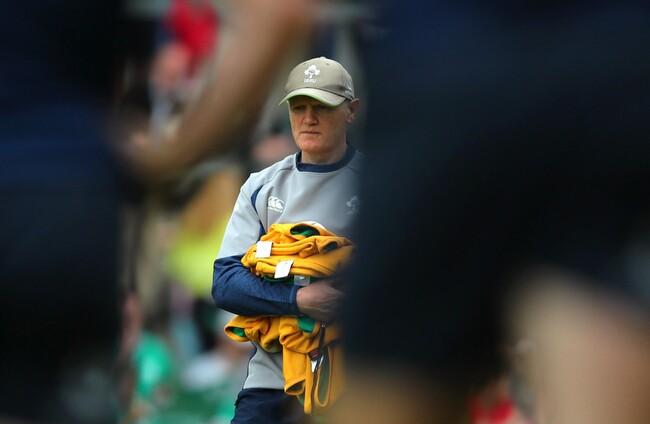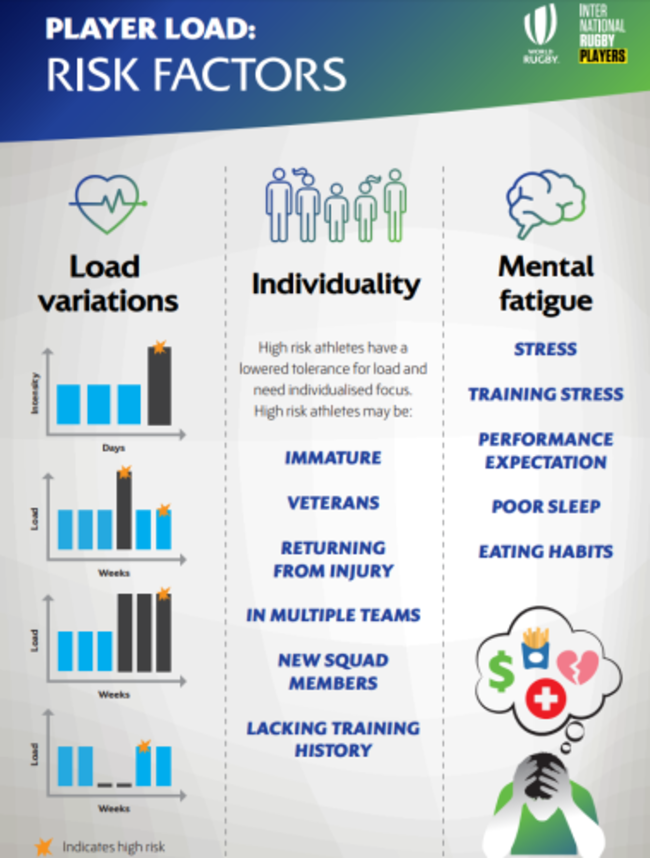IRELAND HEAD COACH Joe Schmidt has given his seal of approval to a 10-point plan issued by the International Rugby Players (IRP) group aimed at preventing player burnout and injury.
Schmidt, who has signalled he will step away from coaching after the World Cup in Japan, sat on the expert group along with World Rugby’s Ross Tucker, Dr Martin Raftery and Gus Pichot along with IRP representatives such as Isaac Boss, Jamie Roberts and Stephen Moore.
The document, the IRP say, is ‘aimed at changing the culture of over-burdening players at all levels of the game’. The chief targets of the information are coaches and young players.
“Players who are well-managed tend to perform more consistently and get injured less often,” said Schmidt.
“Though it’s a collision sport and you can’t completely mitigate against injury.
“Planning and preparation are key. Any spike, whether it’s in training load or on match-day, is a red flag for risk.
”Players should progress gradually to build robustness because if they don’t, they are more likely to injure themselves.”
Many of the points touched on focus around training effort, as Dr Raftery points out that 85% of all player load comes during training sessions.
The principles, which can be viewed in full here, include:
- Guidance on measuring workload through rate of perceived exertion (RPE)
- Advice on planning incremental increases in training effort.
- Directions to push ‘high-risk’ training (such as sprints and contact) at low-risk times (i.e: not after long journeys or under fatigue).
- Provisions for identifying and accommodating high-risk athletes such as older players, inexperienced team members and those with external pressures.
“This holistic programme is about reducing injuries through management of training load and as a consequence improving player performance and long-term well being. Ultimately, it is about changing culture, just as we have been doing with regards to concussion,” said Dr Raftery.
The resources are available to download from World Rugby here>>.












“Joe Schmidt backs common sense”
@Quoka:
YES !!
@Martin Quinn: Martin, you’re incorrect.
“Joe Schmidt backs common sense”
@Quoka:
Your post is not common sense so you are incorrect . But love your indepth knowledge of the game !!